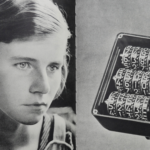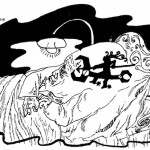At the end of his 1975 introduction to his seminal 1964 Classe Operaia article, “Struggle at FIAT,” Romano Alquati concludes his reflection with a compressed glance back toward one of the impasses that faced him and the other “classical” workerists as they tried to articulate the early days of what would become two decades of social war, from the 1960 magliette a righe (the “striped shirt”) rebellions of Genoa on to a Hot Autumn, a Creeping May, and a range of other seasons, months, and years irrevocably marked by bitter struggle against capital and its stewards.

 Viewpoint Magazine
Viewpoint Magazine
